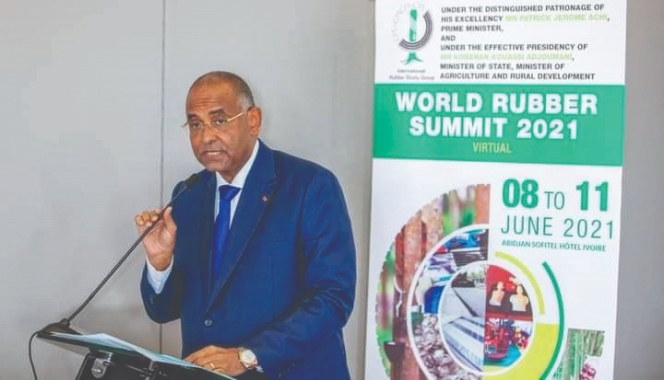
Covid 19 has impacted the global rubber sector, both big and small stakeholders, hard. This year’s edition of the World Rubber Summit will focus on redefining value chains.
“The summit will have two days of high-level presentations and interactive discussions on identifying pathways to redesign more resilient and sustainable value chains, both at the regional and global levels. It will also focus on the critical role that innovation and new technologies could play in mitigating the social, environmental and economic risks to which the rubber sector, like many others, is currently exposed. Visibility, transparency and data-sharing are critical for the 21st century supply chain,” says Salvatore Pinizzotto, Secretary-General, The International Rubber Study Group.
What would be the key focus for this year’s edition of WRS?
The International Rubber Study Group (IRSG) will organise the World Rubber Summit (WRS) in Singapore. The annual event will provide a unique and exclusive opportunity for global leaders to meet, share best practices and lay the foundations for future collaborations. The theme of the World Rubber Summit 2022 (WRS 2022) is ‘A Resilient, Digitalised and Sustainable Rubber Economy: Redefining Value Chains’.
To be held between 24 and 26 May in Singapore at the ParkRoyal on Beach Road, WRS 2022 will be a hybrid event like the previous editions.
The summit will have two days of high-level presentations and interactive discussions on identifying pathways to redesign more resilient and sustainable value chains, both at the regional and global levels. It will also focus on the critical role that innovation and new technologies could play in mitigating the social, environmental and economic risks to which the rubber sector, like many others, is currently exposed. Visibility, transparency and data-sharing are critical for the 21st century supply chain.
I believe this is the time when companies and organisations in the rubber sector should rethink their business model as conditions are changing and new opportunities arise. This is a nique opportunity for all stakeholders involved in the natural and synthetic rubber economy to be innovative to foster resilience, adaptability and long term sustainability.
Furthermore, in their journey towards a net-zero economy, businesses need to redefine, execute and evolve decarbonisation and offsetting plans for scope 1 and 2 emissions and potentially expand those plans to include scope 3 emissions. Integrate climate-related factors into decision-making processes for strategy, finance and capital spending and consider leading actions with others in the rubber industry and/or in their ecosystem of investors, supply chains, customers and regulators. In particular, financial institutions will have an important role to play in supporting large-scale capital reallocation. On the other hand, governments and multilateral institutions could use existing and new policy, regulatory and fiscal tools to establish incentives, support vulnerable stakeholders and foster collective actions.
I would like to take this opportunity to thank Enterprise Singapore, our strategic partner, for being this year, too, as every year when the event is organised in Singapore.Their inputs and contribution are very valuable and essential for IRSG.
Also, this year I am pleased to announce that the Nanyang Technology University (NTU) Singapore’s Agri-Food Innovation Lab (SAIL) will join the World Rubber Summit 2022 as Knowledge Partner. This is the first time for IRSG to have such a significant collaboration. It follows the decision taken by IRSG to participate and contribute to SAIL’s activities as a partner.
Last year, the African region was the focus, and this year it is Latin America. Could you share some information on the Latin American rubber industry and its contribution to the global rubber industry?
The 26th of May, the third day of the WRS 2022, will be dedicated to an entirely virtual side event on the rubber sector in Latin America organised by IRSG together with APABOR and Sociedad Latinoamericana de Tecnologia del Caucho (SLTC). Latin America is an area of growing importance for the world rubber economy, and it could play a relevant strategic role in shortening supply chains and making them more reliable. There are two trends that, in my view, need to be fully considered when we speak about rubber in Latin America. Firstly, the rubber sector is rapidly expanding in Brazil and other countries in that region, such as Guatemala and Colombia. There is an essential trend towards greater integration of the Latin American natural rubber market. Secondly, this is a region where the push towards product innovation and value-added could create a diversified market by exploiting various niche markets in the manufacturing sector such as auto parts, medical industry and even environmental services. In IRSG, we think it is really important to bring to the attention of the general public new developments that are occurring in the rubber economy because it helps to support this process towards innovation and highlight the strategic role that rubber has in the world economy and for our day-by-day life.
What are the main barriers to sustainable and inclusive growth in the rubber industry?
In the rubber economy, as in other sectors, we need to figure out effective forms of collaboration among stakeholders at local, national, regional and global levels to achieve sustainable and inclusive growth. Such partnerships will be able to identify and prioritise actions on the ground without forgetting a certain degree of coherence among the various interventions planned. Of course, this is not easy, because we have several numbers of producing countries; most of the production of natural rubber comes from smallholders, and there are long and complex supply chains. On top of this, new challenges need to be addressed, such as the impact of climate changes on natural rubber systems, a topic that IRSG, together with other leading organisations in the rubber sector (IRRDB, CIFOR/FTA and CIRAD), has decided to investigate since June 2020 and that has produced as an outcome the publication of a policy paper in December 2021. In addressing these issues, we need to have a holistic sectorial approach, with each stakeholder really providing its own skills and support, listening to each other and finding common solutions. The goal is not to leave anyone behind, so we need to pay special attention to smallholders and SMEs that might find it difficult, sometimes impossible, to put in place any sustainable practice and/or initiative. Although some improvements over the years have been achieved, working in this direction has not been an easy process. The pace and scale of this transition mean that today’s organisations and institutions need to be revamped, and maybe new ones created to disseminate best practices, establish standards and tracking mechanisms, drive capital deployment at scale, manage uneven impacts and support further coordination efforts. IRSG will continue to collaborate with other organisations to genuinely ensure that rubber could become an inclusive and sustainable economy.
All major rubber consumers, especially tyre companies, are talking about traceability, transparency and data sharing. Is it really happening in the rubber industry when small stakeholders dominate the more significant portion of the industry?
This process will require coordination, a vast amount of capital and large scale actions on the ground. The stakeholders in the rubber economy have the responsibility to ensure that these three factors will play a synergic role in increasing transparency and dramatically improving traceability. Innovative tools are already available, and more will come in the future, but we need to guarantee the long term wellbeing of smallholders. They need cost-effective support to apply consistently sustainable agriculture practices, have easier access to the market, IT infrastructures and adequate/updated education.
In this World Rubber Summit, IRSG is collaborating with the NextGen Leaders Programme 2021. Could you outline the goal and mission of this initiative?
The NextGen Leaders Programme 2021 has been launched by the IRSG secretariat to create a platform for engaging several ambitious young professionals in the rubber sector in national, regional and international activities and events. The programme participants are invited to collaborate with IRSG’s global rubber dialogue, support the development of balanced policy frameworks and help shape solutions for tomorrow’s rubber economy. The NextGen Rubber Leaders community builds on creative ideas and innovative potential for the next generation to challenge conventional thinking and explore new strategies for the future of the whole rubber economy. It offers young professionals a unique opportunity for learning and development with exposure to critical issues in the rubber debate. Currently, there are 10 participants in the programme covering the whole rubber value chain and from various countries (Singapore, Thailand, Germany, Australia, India, Sri Lanka and Brazil). The World Rubber Summit 2022 will be the first opportunity for them to go public. They will provide their effective contribution to the dialogue on the future of the rubber sector.
- INDIAN TYRE INDUSTRY
- TYRE RETREADING
- BIS STANDARDS
- IS 15704
- ECE R109
- CIRCULAR ECONOMY
- MSME CHALLENGES
- AUTOMOTIVE REGULATION
- CARBON REDUCTION
- FREIGHT
- LOGISTICS
Retreading Hangs In Balance Over Regulatory Conundrum
- By Gaurav Nandi
- December 30, 2025
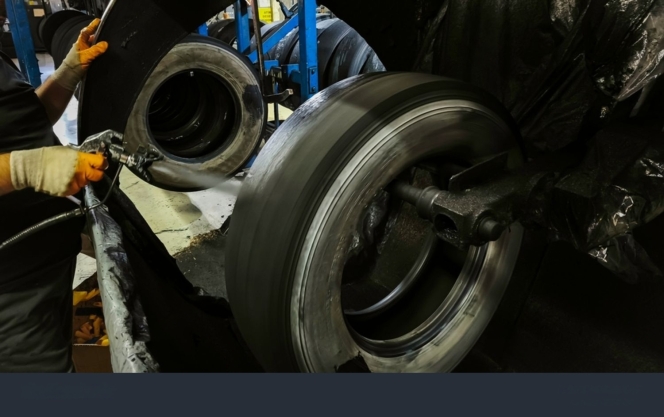
A population of over 1.4 billion people catapulting into the world’s third largest automobile market with four million trucks plying across a road network of 6.3 million kilometres supported by a USD 13.4 billion tyre market and a mining sector contributing around 2–2.5 percent of the country’s GDP demonstrate the strength of India’s automobile, freight and tyre sectors.
The story doesn’t end there as the Central Government adopts a strategic approach on reducing carbon emissions across these verticals, especially automobile and tyres, with targets such as the Net Zero Carbon Emissions by 2070, battery electric vehicles target by 2030, zero-emission truck corridors, Extended Producer Responsibility for the tyre sector; the list just goes on.
Amidst all such statistics and targets, a silent spectator remains the old and varied sector of tyre retreading. In a recent news story reported by Tyre Trends, the Indian Tyre Technical Advisory Committee (ITTAC) had made a proposal to Tyre Retreading Education Association (TREA) for mandating certain standards that will improve the quality of retreads. ITTAC has made recommendations to the BIS committee. TREA is part of the same committee. ITTAC and TREA are recommending different standards.
These standards included BIS retread standards, namely IS 15725, IS 15753, IS 15524 and IS 9168. The ITTAC had partially aligned Indian requirements with ECE R109, the European regulatory benchmark.
In a reply to the proposal, which was accessed by Tyre Trends, TREA urged the Indian Tyre Technical Advisory Committee to seek a deferment or non-applicability of BIS standard IS 15704:2018 for retreaded commercial vehicle tyres, warning that mandatory enforcement could cripple the sector.
In the letter, TREA argued that IS 15704:2018 is largely modelled on new tyre manufacturing norms and is technically unsuitable for retreading, which is a restoration and recycling process.
The standard mandates advanced laboratory tests such as spectrometer-based rubber analysis, endurance testing and compound uniformity checks, requirements that most retreading units, particularly small and medium enterprises, are not equipped to meet
The association highlighted that even large retreaders lack the infrastructure and skilled manpower needed for BIS-grade testing, while the sheer number of retreading units would make inspections and certifications operationally unmanageable for regulators.
TREA warned that compliance costs linked to machinery upgrades, audits and quality control could force 70–80 percent of units to shut down, leading to job losses, higher fleet operating costs and adverse environmental outcomes due to reduced recycling
Instead, TREA proposed that BIS prioritise retreading-specific standards such as IS 13531 and IS 15524, which focus on materials, process control, safety and quality consistency.
The body has also called for a phased transition roadmap, MSME support and industry training before any stricter norms are enforced, stressing that abrupt implementation would undermine the sector’s role in India’s circular economy.
The conundrum
India has a total of 36 administrative divisions comprising 28 states and 8 union territories. The tyre retreading sector has been continuously supporting circularity goals since the early 1970s across the world’s largest economy without getting mainstream recognition.
Even after five decades in service, the industry battles different bottlenecks including fragmentation, manpower shortage, tax pressures brought about by the recent GST revisions and now the implementation of such standards, just to name a few.
The sole practice that can simultaneously reduce carbon emissions from tyres and extend tyre life is assumed the nemesis of an ‘infamous and dangerous practice’ in some states of the country.
However, the industry has been drawing its techniques and quality parameters from the world’s oldest retreading economy, Europe.
“Big retreaders in India already have the necessary processes in place that conform to IS 15524 standards. However, as the standard is not yet mandated, we have voiced support for it because it is process-oriented and outlines how retreading should be carried out, including buffing and building procedures,” said TREA Chairman Karun Sanghi.
He added, “This standard focuses on how the work is done rather than imposing product-level testing that cannot be practically implemented. The current debate on IS 15704 stems from it being fundamentally incompatible. The standard includes requirements such as sidewall marking and destructive testing of retreaded tyres, which are impractical in a retreading environment where each tyre differs in brand, size, application and usage history,” he added.
Destructive testing, he argued, assumes uniform batch sizes. In retreading, where every casing is unique, testing even a single tyre would mean destroying finished products without yielding representative results. Applying such a framework would effectively require the destruction of every tyre in a batch, making compliance unviable.
“We have submitted our response to ITTAC and are awaiting feedback from the committee. We remain open to continued dialogue and will engage further once the committee responds to our submission,” said Sanghi.
According to him, a typical retreader processes about 300 tyres a month across multiple brands including MRF, JK Tyre, Apollo and Michelin and applications ranging from buses and trucks to mining vehicles. These casings vary widely in load cycles, operating conditions and duty patterns, often across several models from the same manufacturer.
The committee has cited European standard ECE R109, but Sanghi points to structural differences: “Europe is a global retreading hub where tyre manufacturers such as Michelin and Bridgestone dominate operations, collect their own tyres, retread them and return them to fleets, making batch-based destructive testing relevant. A similar model exists in US, where large tyre companies lead retreading and largely self-regulate without a single overarching standard. The Indian scenario is different, especially with a fragmented market.”
He stressed that the industry is not opposed to standards but to those that cannot be practically applied, warning that adopting European manufacturing-oriented norms without accounting for India’s market structure and operating realities would be counter-productive.
The debate is no longer about whether standards are needed but whether they are fit for purpose. Without accounting for India’s fragmented retreading ecosystem, enforcing impractical norms could dismantle a circular industry in the name of compliance.
TGL Season 2 Kicks Off With Hankook As Founding And Official Tire Partner
- By TT News
- December 29, 2025
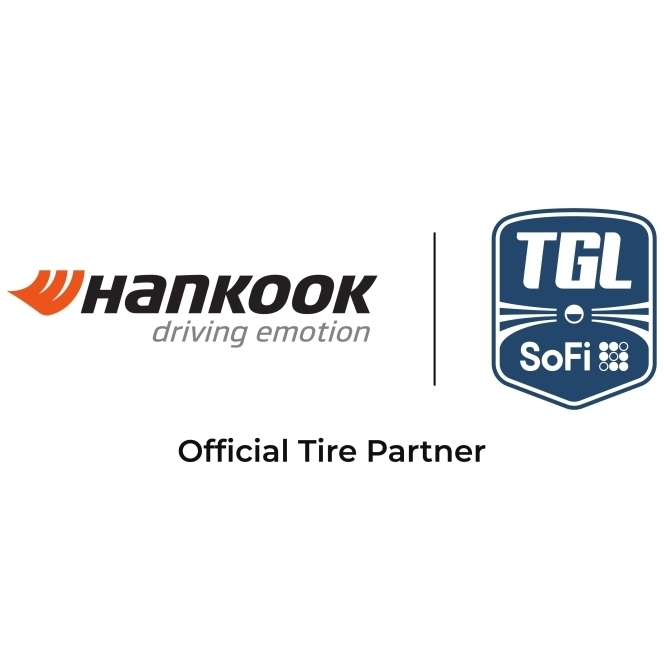
The second season of TGL Presented by SoFi, where Hankook Tire serves as the Founding and Official Tire Partner, commenced on 28 December 2025. This innovative league, a venture of TMRW Sports with backing from icons like Tiger Woods and Rory McIlroy, represents a strategic alignment for Hankook, uniting two entities driven by technological advancement. The partnership provides a global platform to reinforce Hankook's premium brand positioning across North America and worldwide through extensive visibility during broadcasts and at the state-of-the-art SoFi Center in Florida.
This unique venue embodies the league's fusion of sport and technology, featuring a massive simulator with a dedicated ScreenZone and a dynamic GreenZone. This area, equipped with a turntable and over 600 actuators, meticulously replicates real-world golf conditions indoors, creating an immersive arena experience. The competition itself is fast-paced and engaging, with teams of PGA TOUR players competing in Triples and Singles sessions over 15 holes. Innovative elements like the point-doubling ‘Hammer’, real-time strategy via ‘Hot Mic’ and a Shot Clock ensure a dynamic spectacle for fans.
The season opener presented a compelling narrative as a rematch of the inaugural finals, pitting the undefeated Atlanta Drive GC, featuring Justin Thomas and Patrick Cantlay, against a determined New York Golf Club squad led by Matt Fitzpatrick and Xander Schauffele. This match set the tone for an intensive season running through March, where six teams and 24 top golfers will compete. For Hankook, this partnership is more than signage; it is an active engagement with a global community, delivering a distinctive brand experience that bridges cutting-edge mobility and sport for enthusiasts everywhere.
Dunlop Secures CDP ‘A List’ Recognition For Climate Change And Water Security
- By TT News
- December 29, 2025
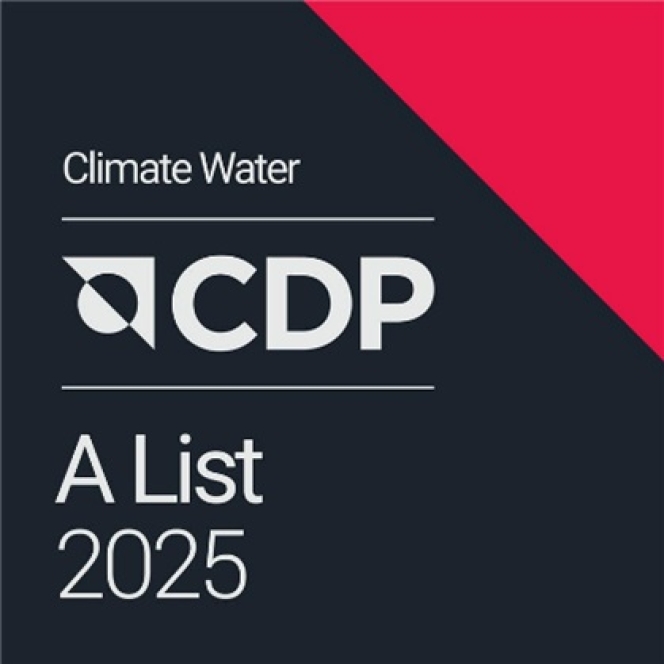
Dunlop (company name: Sumitomo Rubber Industries, Ltd.) has made its way to the annual A-List of CDP for climate change and water security. This premier designation, awarded for the first time to the company in the 2025 evaluation, recognises world-leading performance in transparency, risk management and environmental action. CDP’s annual assessment is a key benchmark for corporate sustainability across climate, water and forests.
This achievement stems from the Group’s integrated approach to material issues outlined in its corporate philosophy. It treats the interconnected challenges of climate change, biodiversity and the circular economy holistically, advancing concrete initiatives under its long-term ‘Driving Our Future’ sustainability policy.
On climate, the Group’s science-based emission reduction targets for 2030 are validated by the Science Based Targets initiative. Operational efforts include pioneering green hydrogen production at its Shirakawa Factory and developing tyres made entirely from sustainable materials by 2050. The company also works to reduce emissions across its supply chain, lowers tyre rolling resistance to improve vehicle fuel economy and extends product life through retreading.
For water security, the strategy is driven by localised risk assessments at global production sites. In seven facilities identified as high-risk, the goal is to achieve 100 percent wastewater recycling by 2050. Progress is already evident, with the company’s Thailand factory reaching full wastewater recycling in 2024.
These coordinated actions on multiple environmental fronts formed the basis for the Group’s simultaneous top-tier recognition in both critical categories from CDP.
Bridgestone Launches Co-Creation Initiative With Ethiopian Airlines Group
- By TT News
- December 29, 2025
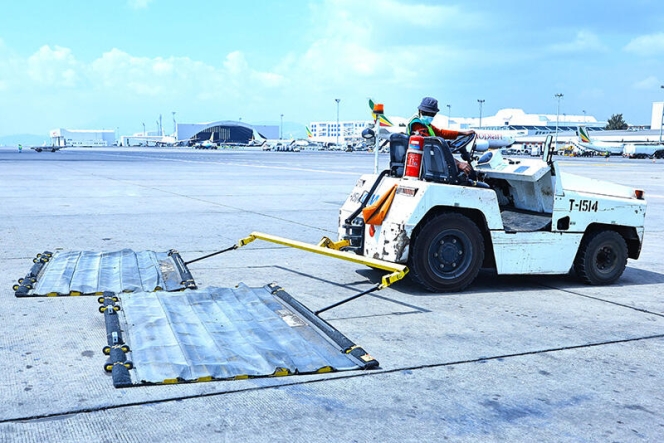
Bridgestone Corporation has initiated a novel co-creation programme in partnership with Ethiopian Airlines and Ethiopian Airports, focused on enhancing aviation safety at Addis Ababa Bole International Airport. This marks Bridgestone’s first sustained three-way collaboration with both an airline and an airport authority, targeting the reduction of Foreign Object Debris on runways and taxiways to support safer and more reliable aircraft operations.
The project was prompted by tyre-related incidents linked to debris at the airport, which previously risked disrupting flight schedules. Leveraging its specialised system for inspecting used airline tyres and analysing debris data, Bridgestone assessed conditions at the hub and proposed a tailored action plan. The company provided continuous support by analysing debris distribution patterns, developing visual hazard maps, advising on efficient collection methods and conducting training to raise awareness among airport personnel.
These sustained efforts have yielded significant results, substantially lowering the rate of tyre damage caused by runway debris compared to levels before the collaboration began. This reduction has supported improved on-time performance for Ethiopian Airlines while advancing overall operational safety. Additionally, the initiative has encouraged greater use of retreaded tyres, promoting economic efficiency and environmental sustainability within the airline’s operations.
Looking ahead, Bridgestone and Ethiopian Airlines Group plan to deepen their co-creation efforts, aiming to generate further value for the aviation sector and broader society through continued innovation and partnership.
Retta Melaku, Chief Operating Officer, Ethiopian Airlines, said, "At Ethiopian Airlines, the safety of our passengers, employees and aircraft is a priority. We are pleased to collaborate with Bridgestone to further strengthen our efforts in reducing FOD at Addis Ababa Bole International Airport and ensure safe operations at the hub airport."
Getaneh Adera, Managing Director, Ethiopian Airports, said, "We remain fully committed to upholding the highest safety standards at Bole International Airport at all times. This significant achievement in reducing FOD is the result of our strong commitment for safe operations and close collaboration with Bridgestone. Through our co-creation activities, we are pleased to have realised safer operations with enhanced productivity and economic value."
Jean-Philippe Minet, Managing Director, Bridgestone Aircraft Tire (Europe) S.A., said, "By combining the learnings and insights from Ethiopian Airlines' operational issues with our analysis technology and know-how, we have deepened our co-creation to propose customised solutions. We are delighted to contribute to safe aircraft operations with peace of mind and to improved operational productivity through the co-creation of efficient FOD reduction on airport surfaces. Through further expansion and evolution of this solution, we will amplify the value of our ‘Dan-Totsu Products’, trust with our customers and value of the data for creating new value."







Comments (0)
ADD COMMENT